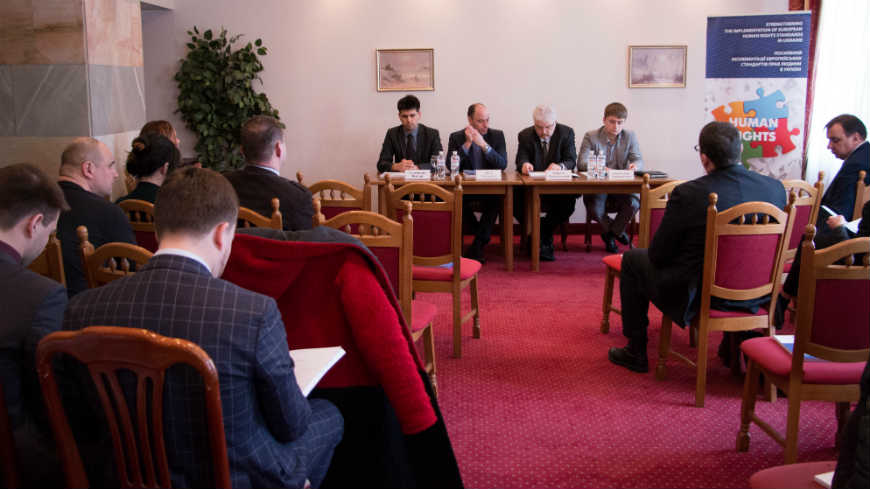2 March 2017 the handbook “Implementation of the International Standards of Prevention of Ill-treatment in the Activities of the Criminal Justice Institutions in Ukraine” was presented in a wide circle of national and international experts and stakeholders. The Handbook is developed by the group of the national experts in the framework of the Joint EU/CoE Programme “Strengthening Implementation of the European Human Rights Standards in Ukraine”. The presentation was followed by the active discussion about the practical aspects of the handbook, possibility to introduce relevant legislative amendments with reference to the recommendations provided in the handbook and further research on the problems highlighted.
The need to adhere to the international standards and national legislation in prevention of ill-treatment cases by the different criminal justice authorities was stressed by the authors of the Handbook, among which Mykola Gnatovskyy, President of the European Committee for the Prevention of Torture and Inhuman and Degrading Treatment or Punishment; Iurii Bielousov, Head of the NGO “Expert Center for Human Rights”; Sergii Shvets, expert of the NGO “Expert Center for Human Rights”; Volodymyr Venger, expert of thе Center оn the Rule of Law of the National University “Kyiv-Mohyla Academy”; Oleksandr Bondarenko, chief specialist of the Special proceedings Unit of the Office of the Ukrainian Parliament Commissioner for Human Rights.
The handbook consist of several chapters that highlight problems of application of the national legislation and implementation of the international standards into activity of four target groups – police, prosecutors, judges and lawyers. The handbook presents a profound analysis of the national legal framework and practice exiting in Ukraine that could be of interest to anyone working over the improvement of human rights protection in Ukraine.
E-version of the Handbook can be found here https://rm.coe.int/doc/09000016806fe8c1


